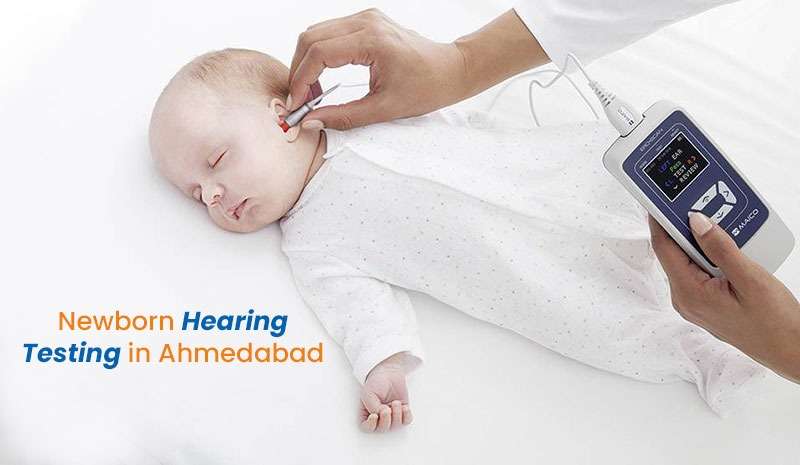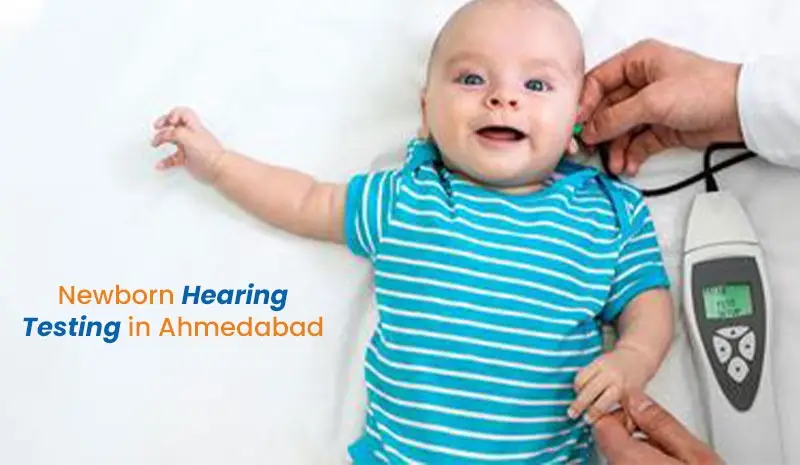Hearing is more than a sense—it’s a baby’s first connection to their parents’ voice, lullabies, and the world around them. But what happens when a baby can’t hear from the very start? Hearing loss can quietly hinder speech, cognitive growth, and emotional development without early detection.
In Ahmedabad, the importance of Newborn Hearing Testing is gaining recognition. It’s a quick, painless procedure that can change the course of a child’s life. And the earlier it’s done, the better the outcomes.
In this blog, we’ll explore how newborn hearing tests work, why they’re critical, and how Ahmedabad is stepping up to ensure every child gets a sound start.
Why Newborn Hearing Testing in Ahmedabad Is Essential: Early Detection, Lifelong Impact
Why Hearing Matters From Day One
A baby’s brain develops rapidly in the first year, and auditory input plays a key role. From recognizing mom’s voice to mimicking sounds, hearing is the gateway to speech, bonding, and learning.
According to the American Speech-Language-Hearing Association (ASHA), children begin learning language as soon as they hear it. Without sound, language pathways in the brain may not develop properly.
Studies show that babies who receive treatment for hearing loss by 6 months of age can develop language skills on par with their hearing peers. That’s the power of early detection.
So, when we say hearing matters from day one, we mean it literally.

What Is Newborn Hearing Testing?
Newborn hearing testing is typically done before a baby leaves the hospital or within the first 30 days of life. It’s non-invasive, quick, and doesn’t require any needles or discomfort.
The Two Most Common Tests:
-
OAE (Otoacoustic Emissions Test): A tiny probe plays soft sounds into the baby’s ear. If the inner ear is working properly, it produces echoes, which the machine records.
-
ABR (Auditory Brainstem Response Test): Measures how the brain responds to sound. Small electrodes are placed on the baby’s head to track activity when sounds are played.
Both tests take only a few minutes. The baby can even be asleep during testing. If a baby doesn’t pass the initial test, it doesn’t always mean they have hearing loss—it just means further testing is needed.
When Should It Be Done?
-
Ideally, within the first 48 hours of birth
-
If not, by 1 month of age
-
Any needed follow-ups should be done by 3 months
Ahmedabad’s top hospitals are now including these tests as part of postnatal care.
The Silent Threat: Consequences of Undetected Hearing Loss
Hearing loss in newborns is more common than many think—1 to 3 in every 1000 babies may be born with some degree of hearing loss.
Without early testing, this condition may go unnoticed for years, especially in mild to moderate cases.
Here’s what could happen if it’s missed:
-
Speech Delays: Children learn to speak by mimicking sounds. Without hearing them, speech development stalls.
-
Cognitive & Learning Issues: Struggles in school can arise from a delayed foundation in language.
-
Social Withdrawal: Children who can’t hear or communicate effectively often feel isolated and frustrated.
And the most heartbreaking part? Many of these challenges are preventable with a simple test at birth.
 +919979891672
+919979891672 











No Comments